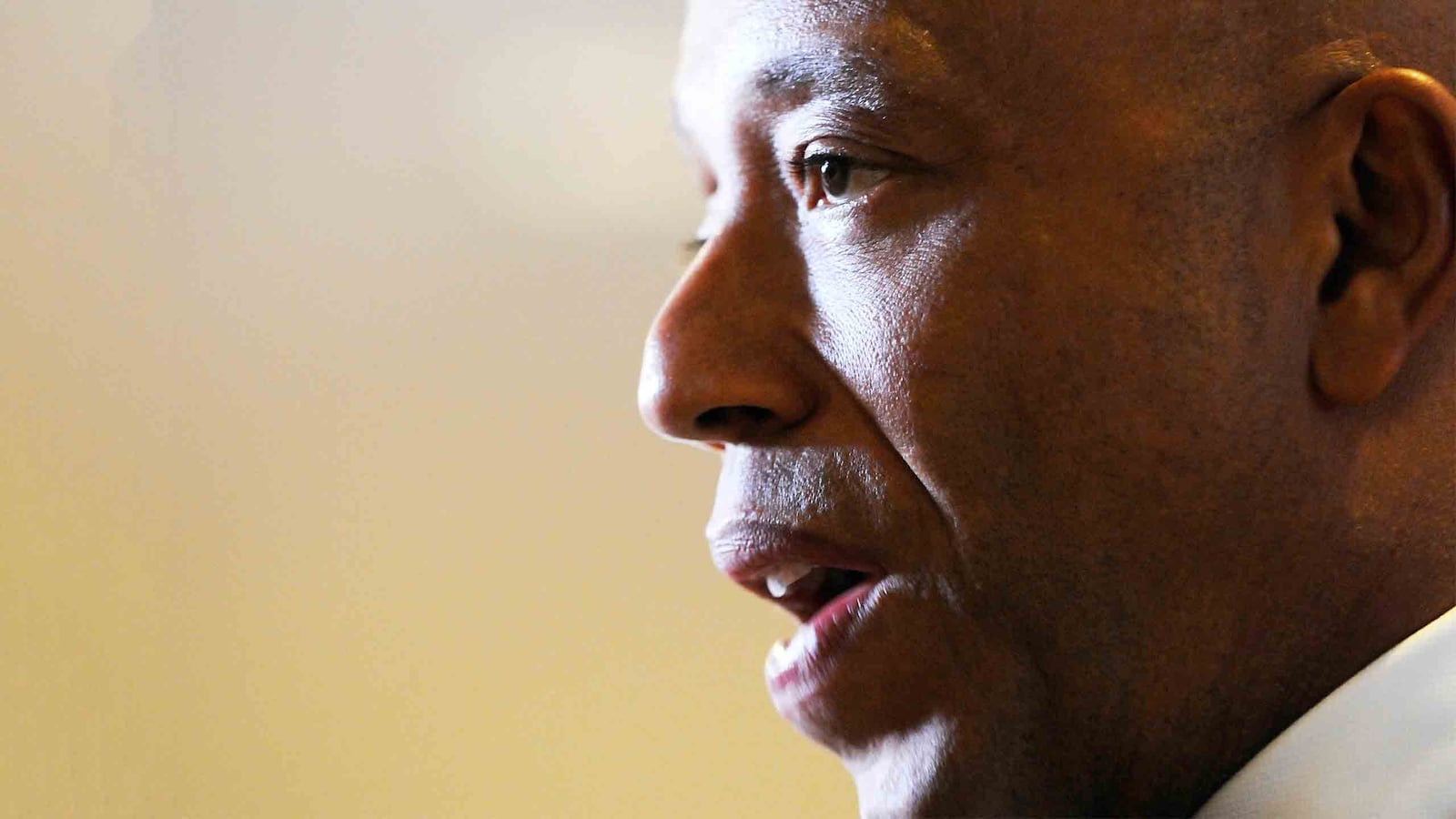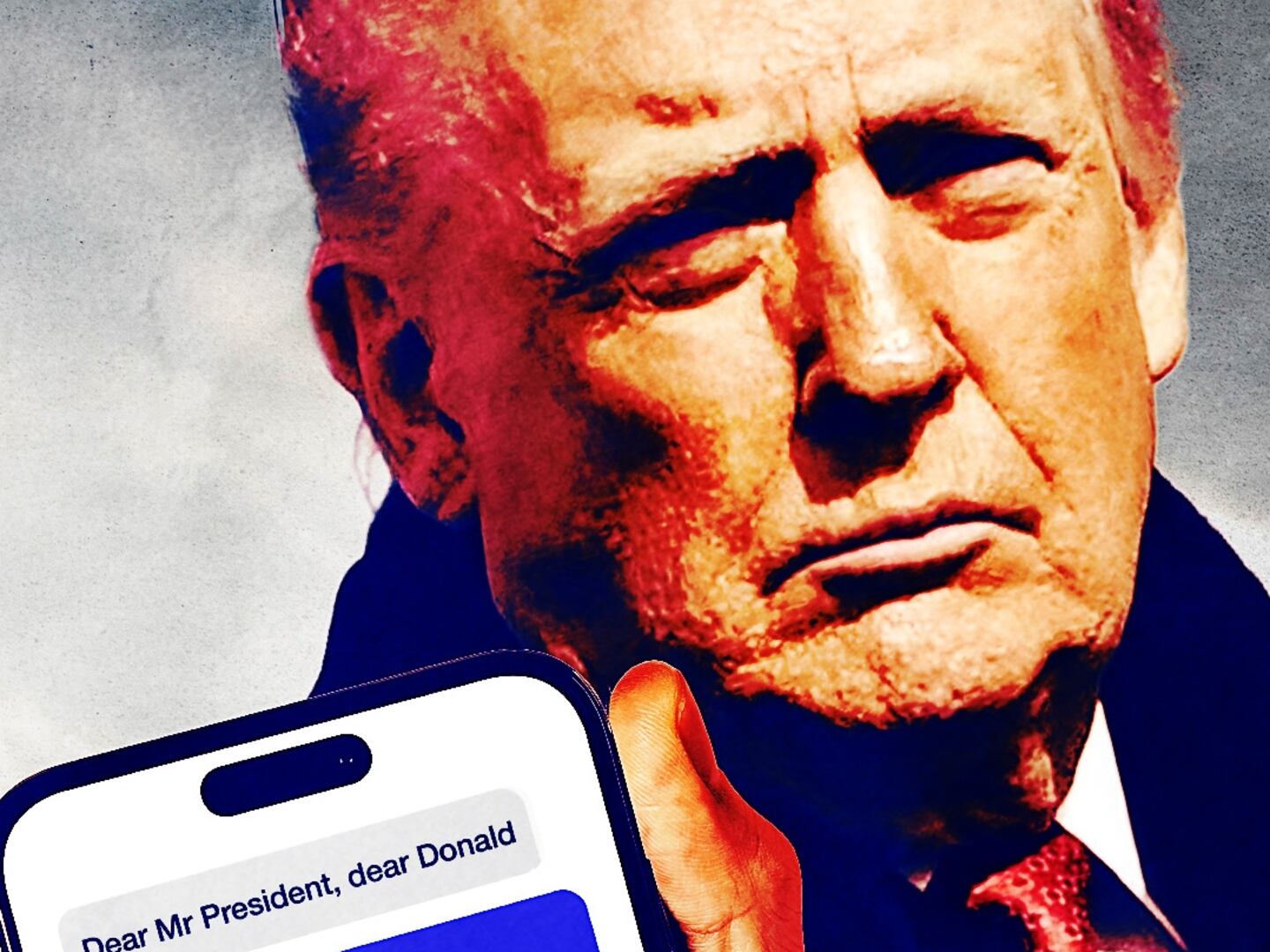Russell Simmons stepped down this week from his various business endeavors after screenwriter Jenny Lumet, in a column for The Hollywood Reporter, wrote that Simmons sexually assaulted her. Having met the Def Jam Records founder while working on the 1988 Run-D.M.C. film Tougher Than Leather, Lumet recounted how Simmons offered her a car ride home one evening but had the driver take her to his apartment instead—where she was led into an elevator and taken to his bedroom.
“At that point, I simply did what I was told,” she wrote of the terrifying encounter. Lumet recalls Simmons being frustrated with his sexual performance.
“I remember being afraid that you would deem that my fault and become violent. I did not know if you were angry, but I was afraid that you were,” Lumet added. “I desperately wanted to keep the situation from escalating. I wanted you to feel that I was not going to be difficult.”
Last month, model Keri Claussen Khalighi alleged that Simmons made advances on her in 1991 when she was 17 and, in front of his then-protégé Brett Ratner, coerced her to have oral sex and penetrated her in a shower without her consent. Now a successful movie director, Ratner has also been recently accused of sexual misconduct by several actresses.
In the wake of the Lumet story, Simmons' Argyleculture fashion line has been dropped from J.C. Penney and HBO announced that they were erasing Simmons from his upcoming stand-up series All Def Comedy. Simmons issued a statement, announcing that he was disassociating from his business enterprises.
“I have been informed with great anguish of Jenny Lumet’s recollection about our night together in 1991,” Simmons said in a statement. “I know Jenny and her family and have seen her several times over the years since the evening she described. While her memory of that evening is very different from mine, it is now clear to me that her feelings of fear and intimidation are real. While I have never been violent, I have been thoughtless and insensitive in some of my relationships over many decades and I sincerely and humbly apologize.”
The statement continued: “This is a time of great transition. The voices of the voiceless, those who have been hurt or shamed, deserve and need to be heard. As the corridors of power inevitably make way for a new generation, I don't want to be a distraction so I am removing myself from the businesses that I founded. The companies will now be run by a new and diverse generation of extraordinary executives who are moving the culture and consciousness forward. I will convert the studio for yogic science into a not-for-profit center of learning and healing. As for me, I will step aside and commit myself to continuing my personal growth, spiritual learning and above all to listening.”
Putting a legacy or a reputation before a crime against the most vulnerable among us is how we’ve created this predatory society.
The allegations against Simmons come on the heels of highly-publicized sexual harassment and rape scandals involving numerous power players in entertainment, news and politics. The music industry has yet to feel the full brunt of this post-Weinstein reckoning; but Russell Simmons won’t be the last domino to fall.
Simmons is a cultural and business figure that represents the economic ascension from hip-hop’s NYC underground first generation to the upward mobility of its second; a man as likely to be spotted in the Hamptons as Harlem. As a culture is forced to rethink how it views power and patriarchy, American society is being forced to look long and hard at what it has allowed to fester and even nurtured. Hip-hop is a microcosm of that; but there are also nuances that are specific to this culture that demand that we take stock and take what’s happening seriously.
Hip-hop has traditionally been viewed and presented as the renegade “outsider” artform—at it’s purest, a non-commercial expression of creativity born in strife. Even at its most commodified, it’s sold as more real and more rebellious. But in reality, this culture fueled an industry, and that industry is rife with the standard trappings of wealth and power. Hip-hop is expression; but as with all things infected with capital and agendas, hip-hop can become oppression. While rockin’ to the bang-bang boogie, fighting the power and turnin’ up for the past 45 years, has hip-hop ever cared who got crushed or silenced under its global ascent?
Like any cultural phenomenon, hip-hop cannot move forward without evolving. That much is certain. When discussing art and music, evolution typically means pushing said art/music forward creatively; but we are at a cultural crossroads that demands that hip-hop evolves ideologically. For so long, we’ve championed this sound and attitude as the voice for young Black and brown men who have historically been marginalized. No doubt: that has always been a part of its power. But have we given true voice to our community in a way that allows us all to see and hear ourselves in hip-hop? It’s been said that hip-hop was the first music since the blues in which Black men spoke to Black men—but when the genre is held up as the voice for Black people, that becomes the worst kind of erasure. And we’ve seen the cultural folly of pushing Black women and LGBTQ people to the margins. Hip-hop is inadequate, even as an expression, if it only exists to promote a narrow, singular point of view.
And silencing victims can’t be how we move forward.
Recently Kid Capri, former DJ on Simmons’ classic HBO standup series Russell Simmons Def Comedy Jam, spoke to Revolt TV about the fallout.
“It’s hard to defend people when you don’t know the situation,” Capri shared. “But when you know the person, it’s hard to believe that type of news. I know Russell and it’s mighty funny to me that all these different things are coming out at one time. Let’s go back to the Bill Cosby thing. I’m not saying it didn’t happen, but you wait 30 years to complain? 50 different women? Now you have a whole train of women coming out and saying something. What happened years ago?”
“The way this is going, a lot of times people in our positions and in entertainment go and take advantage of people and go a little too far.”
“But when you know the character of the person…some of these other people don’t know. I know Russell, how he moves. I know what he’s done for people. I know the lives he’s saved, the opportunities he created. He never moved like that. Again, I wasn’t there. I can’t pass judgment on their actual event. But from me knowing him, it’s almost impossible for me to think of that.”
In Capri’s comments, there are the standard dismissals that have accompanied virtually every notable man accused of doing something awful. Even recent examples show that many people can’t hold respected and powerful men accountable. Last year, when molestation accusations surfaced against Afrika Bambaataa, KRS-One reacted by presenting the hip-hop godfather as above reproach.
“Some of us are infallible,” KRS said during a talk in Birmingham, England, last year after the allegations made headlines. “Some of us are going to have to be untouchable or our entire culture is going to fall. Our culture cannot fall on the accusations of four people, that’s weak.”
Putting a legacy or a reputation before a crime against the most vulnerable among us is how we’ve created this predatory society.
Actor Terry Crews, one of the few heterosexual men in Hollywood who’s come forward as a sexual abuse/harassment victim, revealed last month that none other than Simmons urged him to vouch for his attacker after Crews shared that he was groped by Hollywood agent Adam Venit. Crews tweeted a screenshot of what appeared to be a communication with Simmons: “Did he ever apologize Give the agent a pass Ask that he be reinstated.”
God forbid powerful men should ever have to deal with real consequences for disgusting behavior.
This is bigger than hip-hop. The past two months have made that abundantly clear. But in the wake of the Simmons allegations, the upcoming domestic abuse trial of XXXtentacion, and Rick Ross’ July comments about not signing female rappers, this is an opportunity for the rap game to do some soul-searching as far as where things are heading. Because there will be more uncomfortable stories. There will be more hard truths. And we can’t embrace silence. Change is imminent. For too long, women’s voices have been muted within hip-hop, and it’s time to be honest about why that is and who has benefited the most from it. But more importantly, we must understand why this can’t continue. The next step in hip-hop’s evolution is accountability.






